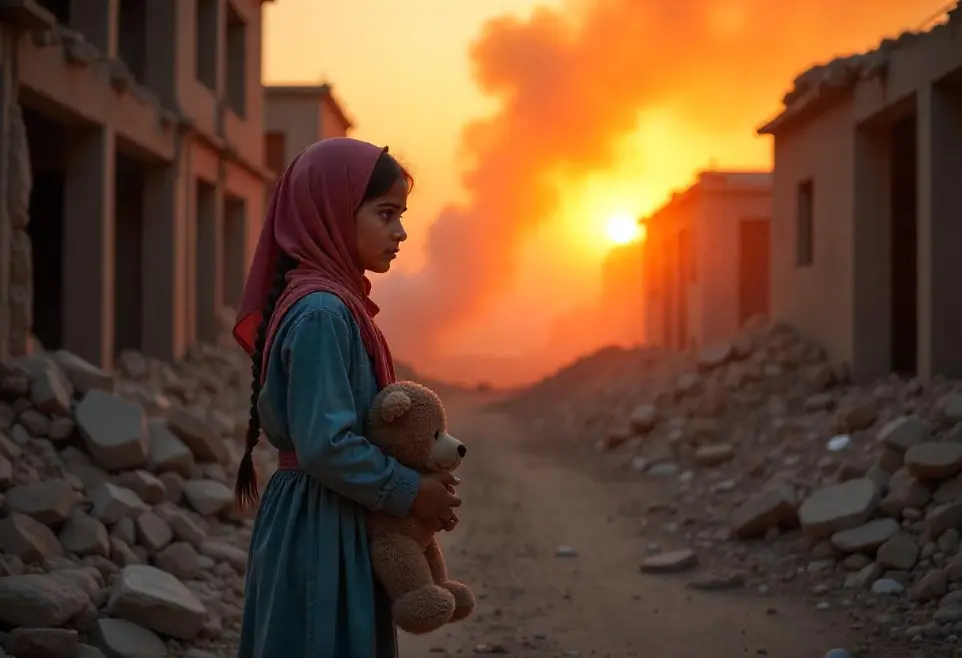
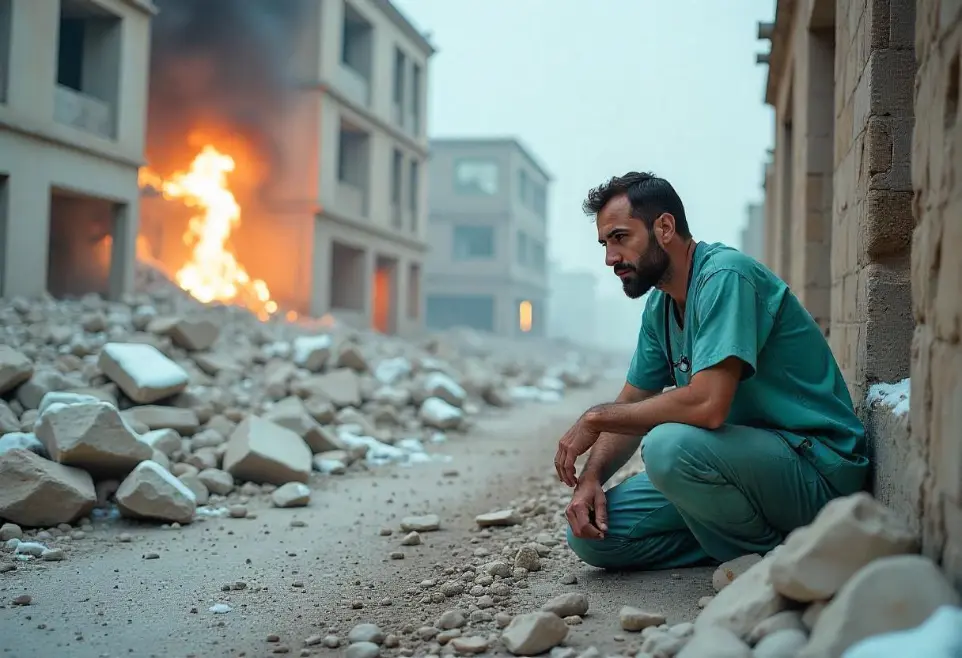
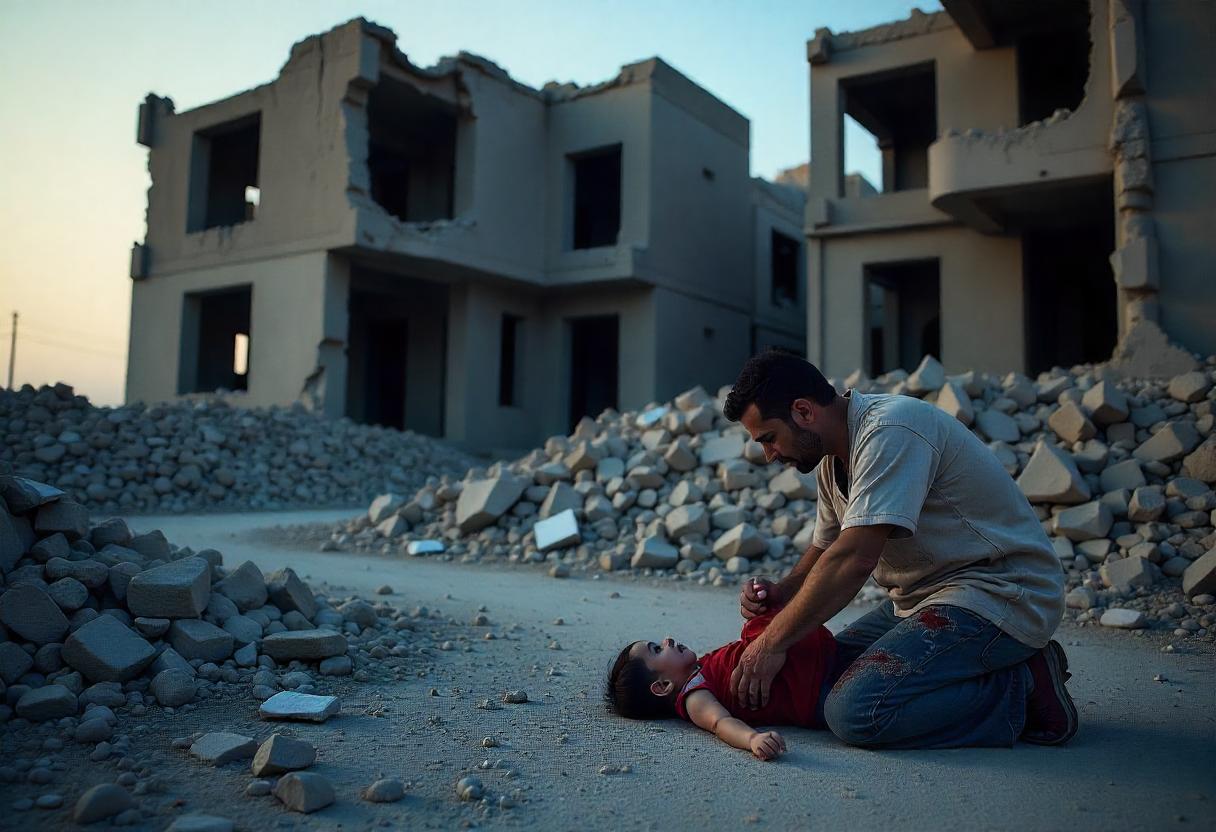
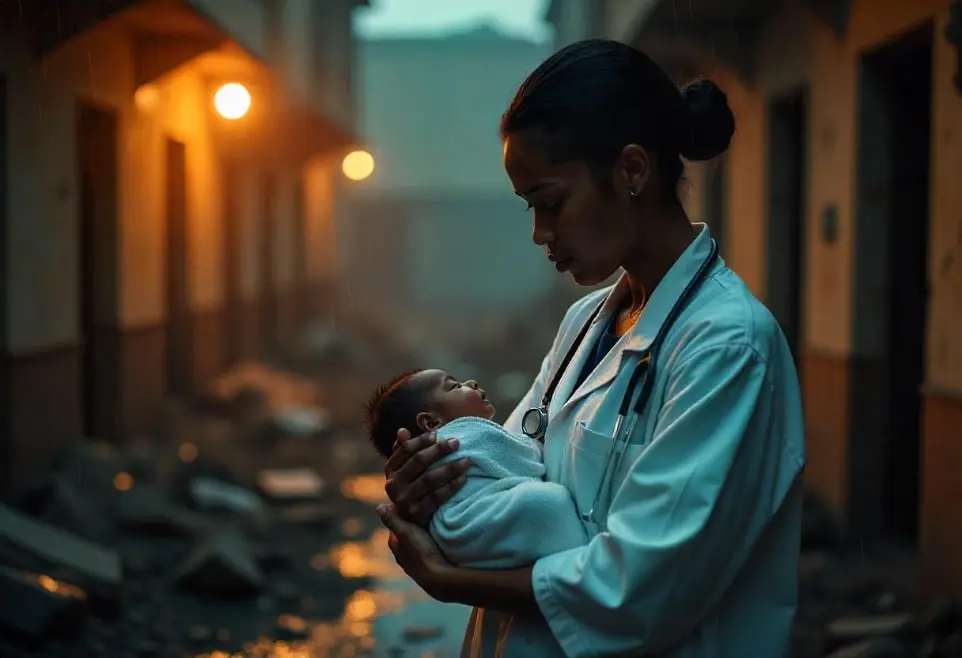
Attacks on Hospitals and Schools in War Zones: Breaking the Rules of Conflict
On our website, we delve into an exhaustive exploration and in-depth analysis of global human rights. In our feature article, "Attacks on Hospitals and Schools in War Zones: Breaking the Rules of Conflict," we unravel the shocking reality of attacks on hospitals in war zones. What are the motives and consequences behind these inhumane acts? Join us on this journey to discover the truth behind these crimes against humanity!
Introduction
We will explore the importance of protecting hospitals and schools in conflict zones, the devastating impact of attacks against these institutions, and the international legislation that seeks to safeguard their integrity in war contexts.
Hospitals and schools are fundamental pillars of any society, providing medical care and education to the population, and in conflict situations, their importance becomes even more crucial. Hospitals are places where the wounded and sick seek treatment and protection, while schools represent the future of communities, providing education and a safe environment for children and young people. Protecting these institutions is essential to preserving human dignity and ensuring the development and well-being of present and future generations.
Hospitals, in particular, are considered protected spaces under international humanitarian law, meaning they must not be attacked and that both staff and patients must be respected and protected at all times. Similarly, schools and their surrounding areas must be zones free of hostilities, in order to preserve an environment conducive to the education and growth of children.
Attacks on hospitals and schools not only represent a clear violation of international law, but also have a devastating impact on the affected communities, leaving long-term scars on the population and undermining the very foundations of society.
Attacks on hospitals and schools in war zones have heartbreaking consequences that go beyond the immediate. These acts of violence not only cause material damage but also cause profound human suffering and psychological trauma among the affected population. The destruction of hospitals deprives the wounded and sick of the lifesaving medical care they need, increasing the risk of preventable deaths and permanent disabilities. Furthermore, attacks on schools deprive children and young people of their right to education, limiting their development opportunities and perpetuating a cycle of disadvantage and vulnerability.
Furthermore, these attacks undermine confidence in the protection offered by international humanitarian law, generating a climate of insecurity and mistrust among the population. The vulnerability of hospitals and schools to attacks undermines communities' ability to maintain a sense of normalcy and rebuild amidst conflict.
It is crucial to understand that the impact of attacks on hospitals and schools extends beyond the direct victims, affecting the entire community and generating long-term repercussions for society as a whole.
International humanitarian law clearly establishes the protection due to hospitals and schools during armed conflict. The Geneva Convention and its Additional Protocols prohibit direct attacks on these institutions, recognizing their importance to the well-being of the civilian population.
Furthermore, international humanitarian law establishes the obligation of parties to a conflict to respect and protect the wounded, sick, medical personnel, and patients, as well as students, teachers, and school staff. This protection includes a prohibition on using these institutions for military purposes, guaranteeing their neutral character and humanitarian function.
These international regulations also establish the responsibility of States and other parties to conflict to investigate and punish attacks on hospitals and schools, ensuring accountability for these crimes that threaten the safety of the civilian population.
International legislation seeks to guarantee the protection of hospitals and schools in conflict zones, recognizing their importance for preserving the life, health, and future of communities affected by armed conflict.
Attacks on Hospitals in War Zones
Attacks on hospitals in war zones represent a flagrant violation of international humanitarian law. In the conflict in Syria, numerous cases of attacks on medical facilities have been documented, resulting in the loss of innocent lives and disruption of access to medical care for thousands of people. In Yemen, the bombing of hospitals has also been a sad reality, with devastating consequences for the civilian population.
These cases highlight the urgent need to protect health facilities in conflict zones and to hold the perpetrators of these attacks accountable. Detailed identification and analysis of each incident are critical to understanding the scale of this problem and taking effective measures to prevent future attacks.
It is crucial for the international community to address these cases with the seriousness they deserve, thoroughly investigating each incident and ensuring justice for the victims of these atrocious attacks.
Attacks on hospitals in war zones have a devastating impact on the civilian population and on the ability to provide crucial medical care to those in desperate need. The destruction of medical facilities and the loss of trained health personnel result in severe shortages of health services, endangering the lives of thousands of people.
Furthermore, the fear of being attacked while seeking medical care deters many people from seeking help, leading to an increase in preventable mortality. Lack of access to medicines and medical supplies also exacerbates the humanitarian crisis, leaving vulnerable communities without adequate care.
The psychological impact of these attacks is also significant, generating deep fear and trauma in the population, especially in children who witness the destruction of their health facilities and the loss of loved ones. This situation demands an urgent and coordinated response to protect medical infrastructure and ensure uninterrupted access to health care in conflict zones.
The international community has strongly condemned attacks on hospitals in conflict zones, urging absolute respect for international humanitarian law and demanding the protection of medical facilities and medical personnel. Organizations such as the Red Cross and Médecins Sans Frontières have played a crucial role in documenting these attacks and advocating for the protection of medical infrastructure in war environments.
Initiatives have been undertaken to establish safe zones for hospitals, and pressure has been placed on conflict actors to respect the neutrality of medical facilities. However, it remains critical to intensify efforts to ensure that these commitments are fully honored and that future attacks on hospitals in war zones are prevented.
The responsibility to protect civilians and medical infrastructure rests with the international community as a whole, and it is imperative that concrete steps be taken to prevent further tragedies and ensure that hospitals remain safe spaces for medical care, even in times of armed conflict.
The protection of hospitals in conflict zones is essential to ensure access to medical care for the affected population. One of the most important measures is the clear identification of health facilities, both locally and internationally. This involves visible signage of buildings and notification of their location to the parties to the conflict, as well as to military forces present in the area.
Another crucial measure is strict respect for the neutrality of medical facilities. This implies that both state and non-state actors must refrain from using medical facilities for military purposes and ensure that armed forces are not deployed within them. It is also essential that medical personnel and patients are respected and protected at all times, in accordance with International Humanitarian Law.
Furthermore, cooperation with humanitarian organizations and international agencies is essential to strengthen the protection of hospitals in conflict zones. These organizations can provide technical advice, specialized training, emergency supplies, and logistical support to improve the security of medical facilities and the personnel working there. Furthermore, the presence of international observers can help deter attacks and ensure respect for the neutrality of health facilities.
Attacks on Schools in War Zones
Studying incidents of attacks on schools in contexts of armed conflict is essential to understanding the magnitude and severity of this problem. Numerous cases have been documented in which schools have been deliberately targeted, endangering the safety of children, teachers, and school staff. These incidents are a clear violation of human rights and international humanitarian law.
Attacks on schools not only cause material damage but also have a devastating impact on access to education for children already in vulnerable situations due to armed conflict. A detailed analysis of these incidents makes it possible to identify trends, assess their impact, and advocate for more effective protection measures for schools in war zones.
It is crucial to collect accurate data on these attacks, including the location, date, number of casualties, and any other relevant information that can help understand the severity of the situation and advocate for concrete measures to prevent future attacks.
Attacks on schools in war zones have devastating consequences that go beyond material damage. The disruption of children's education, the constant fear of attacks, and the loss of lives and future opportunities are just some of the most serious consequences.
Furthermore, these attacks undermine efforts to provide a safe and protective environment for children, which is a fundamental right enshrined in the Convention on the Rights of the Child. Lack of access to quality education also has a long-term impact on the reconstruction and stability of communities affected by conflict.
It is crucial to highlight the psychological and emotional consequences of attacks on schools in war zones, which can leave deep scars on the lives of children and their families. These consequences underscore the urgency of protecting schools as safe spaces, even in the midst of armed conflict.
The role of education in situations of armed conflict is vitally important for the well-being and future of children and affected communities. Education not only provides knowledge and skills but also provides a sense of normalcy, stability, and hope amidst extremely difficult circumstances.
Schools are not only spaces for learning but also play a crucial role in the protection and well-being of children. They provide a safe environment, access to basic services, and the opportunity to develop meaningful social relationships, which is essential for children's mental and emotional health in times of conflict.
Furthermore, education in contexts of armed conflict contributes to breaking the cycle of violence and laying the foundation for reconstruction and sustainable peace. Therefore, protecting schools from attacks in war zones is essential to guaranteeing the right to education and building a safer and more promising future for future generations.
Protecting schools in war zones is critical to guaranteeing children and young people's right to education and preserving a safe and conducive environment for learning. To prevent and protect schools from attacks in war zones, it is crucial that the international community and actors in conflict take concrete and effective measures.
One of the key actions is raising awareness and training parties to the conflict, as well as military forces and armed groups, on the importance of respecting the sanctity of schools. This includes disseminating and promoting compliance with international humanitarian and human rights law, which prohibit deliberate attacks on educational facilities and require the protection of students, teachers, and school staff.
Furthermore, it is essential to establish mechanisms for monitoring and reporting violations, as well as ensuring accountability for attacks on schools. This involves collaboration between humanitarian organizations, UN agencies, governments, and civil society to document incidents, investigate violations, and ensure that those responsible are brought to justice. Specific strategies for the protection of schools must also be developed, such as implementing security protocols, creating safe zones, and promoting local agreements not to attack educational institutions.

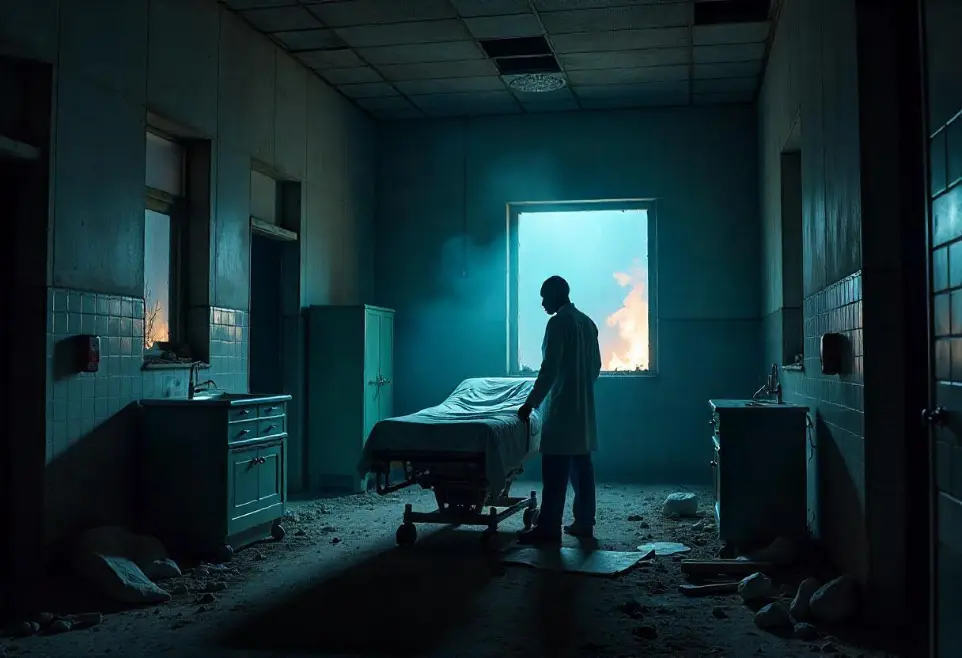
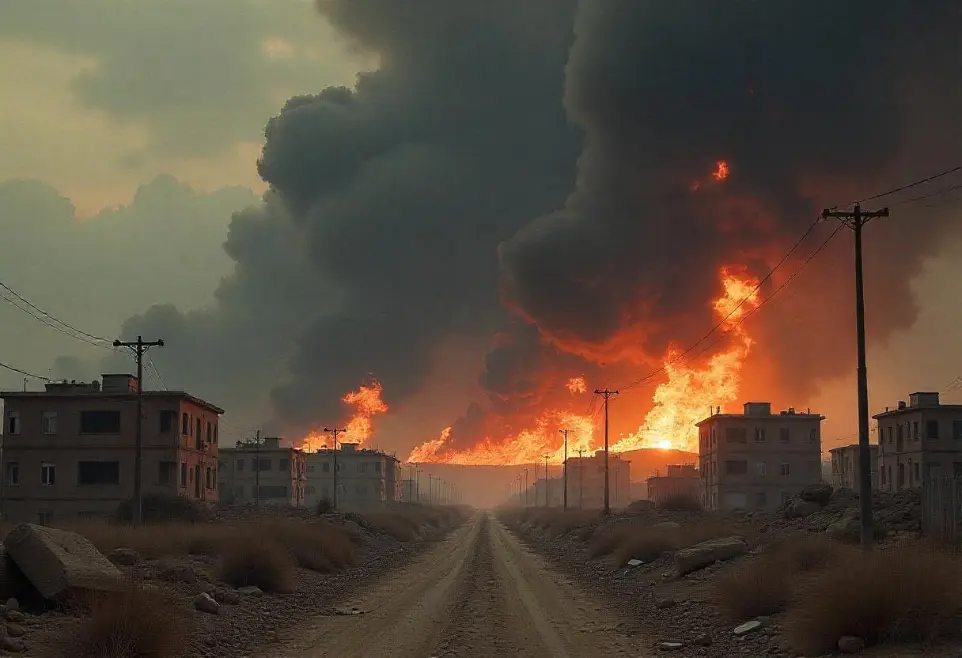
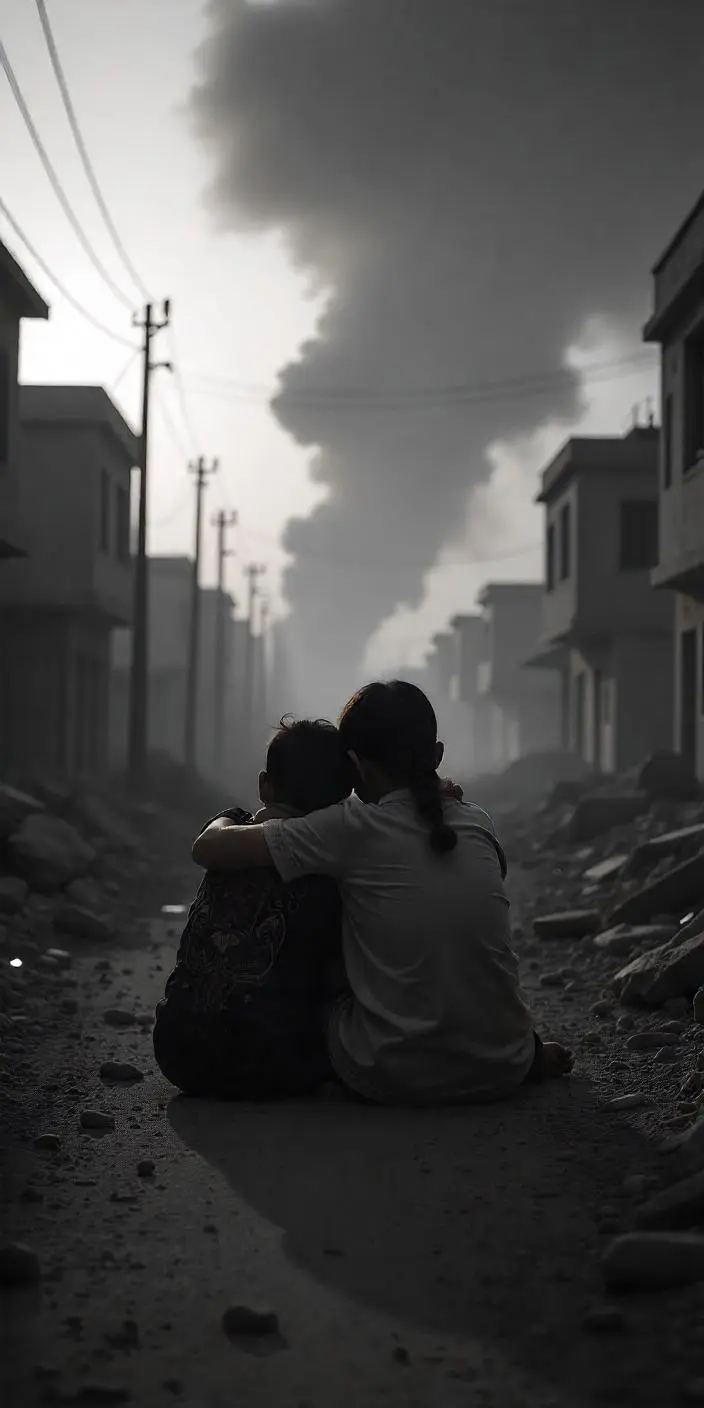
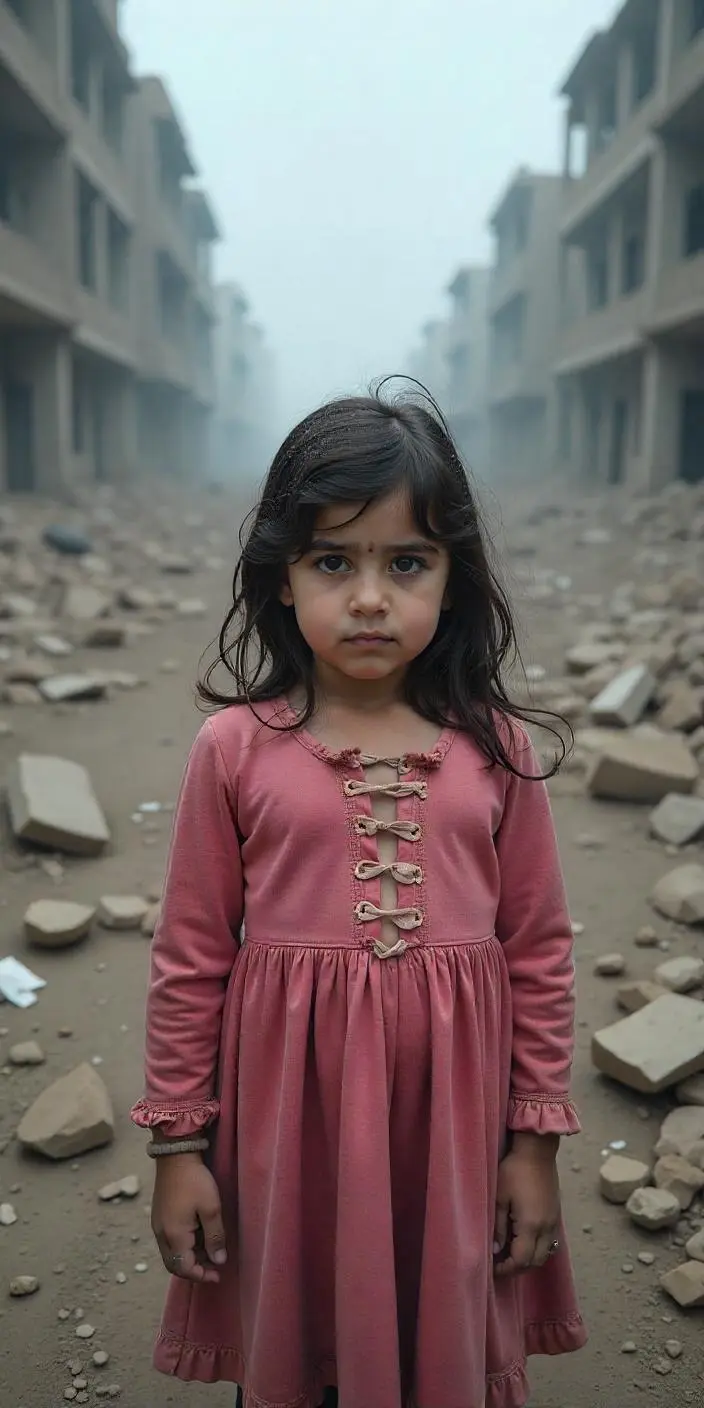

Impact on the Civilian Population
Attacks on hospitals and schools in conflict zones have devastating consequences for the civilian population. The destruction of hospitals results in a lack of adequate medical care for the wounded and sick, which significantly increases the mortality rate. Furthermore, attacks on schools deprive children of their right to education and expose them to an environment of insecurity and fear.
These attacks have a lasting impact on communities, undermining trust in government structures and the forces involved in the conflict. A sense of vulnerability and helplessness becomes entrenched in the population, hindering the recovery and reconstruction of the affected society.
It is important to emphasize that these acts constitute serious violations of international humanitarian law, which requires a robust response from the international community to prevent the recurrence of these war crimes.
Attacks on hospitals and schools in conflict zones lead to the forced displacement of the civilian population. The destruction of these vital infrastructures forces people to leave their homes in search of safety and access to basic services. This situation contributes to the humanitarian crisis, with a significant impact on the health, well-being, and emotional stability of the displaced.
Furthermore, forced displacement leads to the loss of access to essential services, such as drinking water, food, and shelter, which exacerbates the precarious situation of those affected. The lack of access to basic services increases the vulnerability of the population, especially children, women, and the elderly, who face greater difficulties in meeting their most basic needs.
The international community must be alert to this situation and provide humanitarian support to people displaced by these attacks, ensuring their access to basic services and protection from further attacks.
Attacks on hospitals and schools in conflict zones cause serious psychological disorders in children and adults. Exposure to violence, the loss of loved ones, and the destruction of the family and community environment leave profound emotional scars on the affected population. Children, in particular, suffer trauma that can affect their long-term cognitive, emotional, and social development.
Adults also experience psychological disorders, such as post-traumatic stress, depression, and anxiety, as a direct result of attacks on hospitals and schools. This situation impacts people's ability to rebuild their lives and contribute to the sustainable development of their communities, negatively impacting society as a whole.
It is essential to provide psychological and social support to those affected by these attacks, ensuring access to mental health services and promoting safe spaces for the expression and processing of traumatic experiences.
Accountability and Justice
Attacks on hospitals and schools in conflict zones represent a significant challenge in terms of accountability. Those responsible for these atrocious acts are often not brought to justice, leading to impunity and perpetuating a cycle of violence. Difficulty identifying perpetrators, gathering evidence in chaotic environments, and ensuring a fair trial are just some of the barriers that hinder accountability for these crimes.
The lack of accountability undermines efforts to protect human rights in armed conflict and sends a dangerous message that such violations can be committed without consequences. It is critical to address these challenges and work to create effective mechanisms to hold those who perpetrate these inhumane acts accountable.
It is crucial to promote measures that ensure accountability for attacks on hospitals and schools in conflict zones in order to protect the fundamental rights of those affected by these atrocity crimes.
International tribunals play a critical role in the prosecution of war crimes, including attacks on hospitals and schools in conflict zones. These tribunals, such as the International Criminal Court, have the authority to prosecute individuals accused of committing war crimes, contributing to accountability and the prevention of future violations.
The work of international tribunals is crucial in ensuring that those responsible for attacks on hospitals and schools are brought to justice, sending a clear message that these crimes will not be tolerated. Furthermore, these tribunals help establish legal precedents that strengthen the international legal framework for the protection of human rights in situations of armed conflict.
Collaboration with and support for international tribunals are critical to promoting justice and accountability in cases of attacks on hospitals and schools in war zones, laying the foundation for greater respect for human rights in conflict contexts.
Victims of attacks on hospitals and schools in conflict zones face devastating trauma and loss, and it is essential to ensure they receive due reparation for the harm they have suffered. Reparation for victims encompasses not only financial compensation but also rehabilitation measures, medical assistance, psychosocial support, and other forms of assistance that enable them to rebuild their lives.
Furthermore, reparation for victims includes acknowledgment of their suffering and ensuring that justice is served on their behalf. This aspect is crucial for the individual and collective healing of communities affected by attacks on hospitals and schools in war zones.
Reparation measures for victims must be an integral part of efforts to address human rights violations in armed conflict and must be implemented effectively and sensitive to the specific needs of each person affected. Reparation not only seeks to compensate for material losses but also to restore the dignity and well-being of victims, providing them with a path to recovery and justice.
Conclusion
Attacks on hospitals and schools in war zones represent one of the most serious human rights violations. These institutions must be safe spaces, protected from violence and armed conflict, in order to guarantee access to healthcare and education, especially for the most vulnerable groups such as children, women, and the elderly. Attacks on hospitals and schools not only have an immediate impact on the people in these places, but also have a devastating effect on the entire community and undermine efforts for peace and stability in conflict zones.
Stopping attacks on hospitals and schools is critical to protecting human rights and moving toward a scenario where civilians are not victims of armed conflict. The international community, governments, and humanitarian organizations have a responsibility to take concrete and effective measures to prevent and stop these attacks, as well as to ensure accountability for those who perpetrate them.
It is crucial to raise awareness and educate about the importance of respecting and protecting these spaces, as well as to promote the implementation of international laws and agreements that specifically prohibit attacks on hospitals and schools in war zones. Only through global commitment and coordinated actions can we move toward a world where these attacks are considered unacceptable and their future occurrence is prevented.
To protect human rights in armed conflict and prevent attacks on hospitals and schools, it is essential that governments and international actors take concrete measures. These actions include strengthening mechanisms for monitoring and reporting violations, establishing safe zones for the civilian population, guaranteeing humanitarian access to conflict zones, and protecting human rights defenders working in these areas.
It is also crucial to promote training and awareness-raising among armed actors on respect for international humanitarian law, as well as urging the international community to exert diplomatic and political pressure on countries and groups involved in armed conflict to respect and protect human rights. Accountability also plays a fundamental role in preventing violations, making it necessary to promote impartial investigations and judicial proceedings against those who commit attacks on hospitals and schools in war zones.
Furthermore, cooperation between States, humanitarian organizations, civil society, and United Nations agencies is essential to ensure a comprehensive and effective response to attacks on hospitals and schools in war zones, as well as to provide assistance and protection to victims. Only through a multidimensional and coordinated approach can progress be made toward the effective protection of human rights in contexts of armed conflict.

 IHRO NEWS
IHRO NEWS